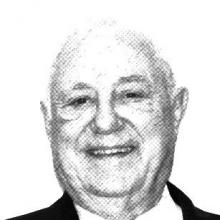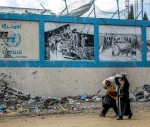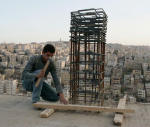You are here
King Abdullah — a voice of reason
Mar 18,2015 - Last updated at Mar 18,2015
It is my view that the only way to fight or vanquish one idea is to replace it with another one.
If we have learned anything from our history, it is that once an idea has been introduced, no matter how trivial, confused or extreme, it will strike roots among some people who will cling to it as part of their identity, and it will survive forever.
One of the most important and beautiful characteristics of our Arab, Islamic civilisation is the fantastic space it has offered, throughout history, for the coexistence and survival of cultural, linguistic and religious diversity.
Unlike in Western civilisation, diversity is accepted as a fact of life as ordained by God, rooted in the Holy Koran, itself, “no compulsion in religion” and peaceful coexistence with “the people of the book”.
Such coexistence did not come about through the beneficence of one caliph or another, but is an integral part of the faith: a faith that regards itself as a renewal of the monotheistic Abrahamic tradition.
These and similar thoughts passed through my mind as I sat a few days ago listening to King Abdullah address the European Parliament about the terror and extremism that have become the hallmark of our life in the world of the Arabs and Islam.
While growing up as an Arab Orthodox Christian, I always felt myself part and parcel of our Islamic civilisation.
My language, culture, behaviour, history cannot be separated from the values and traditions of Islam.
I feel that Islam is like the skin within which my body exists, and I become offended and incensed when someone in a faraway land has the audacity to insult the symbols of Islam: The Prophet (pbuh), the Holy Koran, or our way of life and values.
As I sat listening to our King addressing the Europeans in a language and in a way they could understand, I was reminded that this was the Islam I know, that I grew up in; the Islam that not only accepts but respects and appreciates the other.
We, Arabs, sometimes forget one of the loveliest aspects of our civilisation: our colourful mosaic culture.
In Amman, and until recently in Damascus, Baghdad or any other Arab capital, it was not uncommon to find several cultures living in close proximity or even in the same apartment building: a Sunni, perhaps a Shiite, a Durzi, a Bahai, an Orthodox, a Catholic, a Protestant, an Assyrian, an Armenian, a Circassian, a Chechen, a Kurd or a Bukhari family.
Each household a culture of its own, perhaps praying or celebrating its special occasions in its own way or sometimes even sharing them with others.
This is the Islam I know, what the past generations of my family knew from the advent of Islam.
This is the Islam King Abdullah spoke about to the Europeans.
Not the savage ideology that has hijacked Islam and commits heinous horrors in its name.
If Christianity is the religion of love, Islam is the religion of mercy.
An Arabic proverb says “Mercy must rise even above justice”, inferring that human values are the essence of belief.
While speaking against the rising tide of Islamophobia in the West, the King reminded his European hosts of the Nazi and fascist ideology, an “… expansionist ideology based on hate and disregard for the very essence of humanity…”, adding that “among the very names of God are: … the compassionate, the all merciful…”.
Jordan is emerging as the voice of sanity and moderation in today’s world and it is incumbent upon all of us to support this trend that stands as an alternative to the dark forces of extremism.
King Abdullah is unique among world leaders in that he has been consistent in his efforts to bring about understanding between faiths.
Since his accession to the Throne, he has made call after call for that noble cause, convening numerous national, regional and international conferences.
Also to be saluted are his Amman Message; A Common Word; and the International Harmony Week that was adopted by the United Nations General Assembly and will be celebrated worldwide the first week of February every year.
We Jordanians, Arabs, Muslims and Christians alike, should support these efforts, not just for the sake of Jordan, but for the sake of all Arabs and of Islam.
This is of vital importance, especially at this moment when the Arab world is wounded and bleeding everywhere: Palestine, Iraq, Syria, Libya, Yemen, Somalia the Sudan, with Egypt in trouble and Lebanon for months now unable to elect a president.
The writer is director of Jordan Institute for Middle East Studies. He contributed this article to The Jordan Times.













